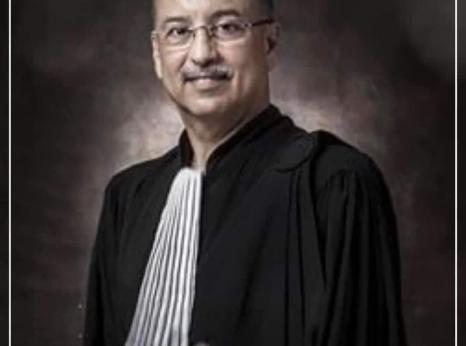Tunisia: Drop Charges Against Lawyer On Military Trial

Abderazzak Kilani is a lawyer, former president of the Tunisian Bar Association, former minister in charge of government’s relations with the parliament from 2011 to 2013, and Tunisian ambassador to the United Nations in Geneva from 2013 to 2014. He is also a member of legal defence team of Noureddine Bhiri, a former justice minister and senior official of the Ennahdha party whom authorities detained arbitrarily for 67 days before releasing him without charge on 7 March 2022. Throughout his detention, he was denied his right to have access to his lawyers.
On 31 December 2021, the authorities detained Noureddine Bhiri outside his home in Tunis and carried him off to an undisclosed location. His wife, also a lawyer, who witnessed the arrest, immediately called on fellow lawyers for help. Abderazzak Kilani began coordinating Noureddine Bhiri’s legal defence team. On 2 January, Abderazzak Kilani and Noureddine Bhiri’s wife, together with other lawyers, went to Bougatfa Hospital, in the city of Bizerte, where they had learned that Bhiri had been brought by authorities, and attempted to go inside and visit him. Abderrazak Kilani and Akremi told Amnesty International how police who were deployed outside the hospital barred Akremi from entering to see Bhiri unless she agreed to sign a document whose contents she did not know, and barred Abderazzak Kilani from entering to see Bhiri entirely.
On 2 January, Abderazzak Kilani and Noureddine Bhiri’s wife, together with other lawyers, went to Bougatfa Hospital, in the city of Bizerte, where they had learned that Bhiri had been brought by authorities, and attempted to go inside and visit him. Abderrazak Kilani and Akremi told Amnesty International how police who were deployed outside the hospital barred Akremi from entering to see Bhiri unless she agreed to sign a document whose contents she did not know, and barred Abderazzak Kilani from entering to see Bhiri entirely.
Abderrazak Kilani told the police that in barring him from the hospital they risked exposing themselves to prosecution, comparing the situation to that of security officers tried for human rights violations committed under former presidents Habib Bourguiba and Zine El Abidine Ben Ali before specialized transitional justice courts set up after the 2011 revolution that ousted Ben Ali. The exchange was filmed and posted on social media, in a video that Abderazzak Kilani confirmed to Amnesty International showed his encounter with police outside the hospital.
A military judge investigated the incident at Habib Bougatfa Hospital, on which the charges brought against Abderazzak Kilani are based on and confirmed that the "verbal exchange" Abderazzak Kilani had with police officers on 2 January outside of the Habib Bougatfa Hospital, in Bizerte served as basis for his prosecution.
Tunisian law grants military courts jurisdiction to prosecute civilians in some circumstances, including for offenses under the penal code that are committed in certain circumstances against security personnel as per Article 22 of Law 1982-70 regulating the status of internal security forces.
Legal representation is fundamental to fair trial rights as guaranteed by treaties that Tunisia has ratified. These include the International Covenant on Civil and Political Rights and the African Charter on Human and Peoples’ Rights. According to the United Nation’s Basic Principles on the Role of Lawyers, governments should ensure lawyers “are able to perform all of their professional functions without intimidation, hindrance, harassment or improper interference”.
Tunisia’s military courts do not fulfil the requirement of independence because the president has final say over the appointment of judges and prosecutors to military courts. In addition, both the general prosecutor who heads the military justice system, as well as all prosecutors in the military courts, who play a pivotal role in initiating proceedings, are serving members of the military and subject to military disciplinary procedures. This places them under the influence of the executive branch, since the president is also commander-in-chief of the armed forces under Tunisia’s constitution.
Since President Saied’s power grab on 25 July 2021, military courts have increasingly investigated and prosecuted civilians, including a journalist, a blogger and opposition politicians.